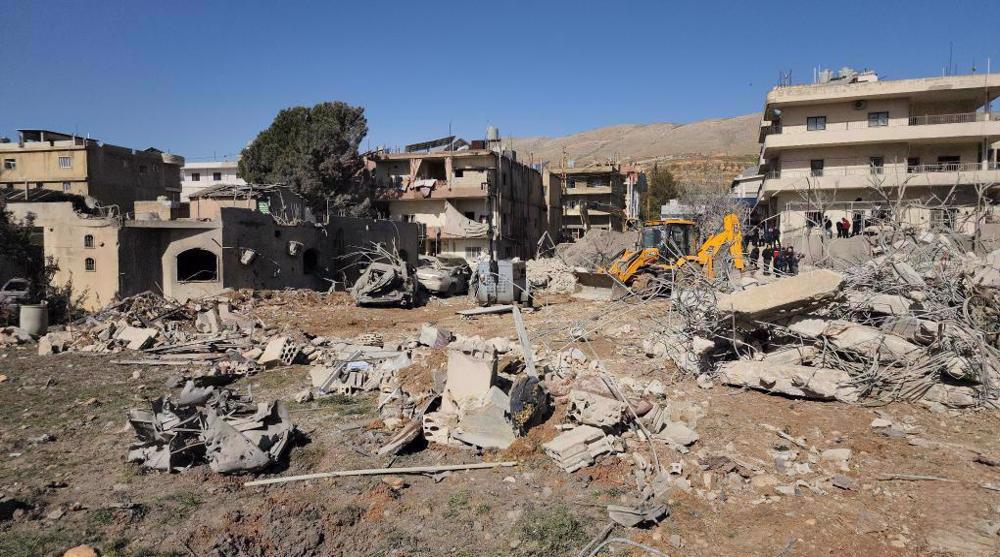Leave Yemen or face crippling attacks on your country: Ansarallah to UAE
Yemen’s Houthi Ansarullah movement has warned the United Arab Emirates to leave the war-wracked country or face "crippling attacks" on "their own soil".
Abdul Wahab al-Mahbashi, an Ansarullah member in Yemen's Supreme Political Council, warned the UAE that Yemeni forces will wage destructive attacks on the Persian Gulf country if it continues taking part in the Saudi war on Yemen.
Mohammed al-Bukhaiti, another Supreme Political Council member, called for the UAE to "quit escalating tensions", noting that "the opportunity given to Abu Dhabi is limited."
Al-Bukhaiti urged the Emirati forces to withdraw from "the country's western coast and its southern provinces".
He added that the UAE is seeking to gain influence in Tai'zz Province.
"A number of Emirati mercenaries have left for Tai'zz from the A'sab base in Eritrea in a bid to obtain military advances following completion of their training," he said.

Al-Bukhaiti said that any escalation on behalf of enemy forces will be met with an "extensive" response from Yemen, adding that the enemy's use of non-military ships and ports endangers maritime security.
The Yemeni officials' stern warnings for the UAE come nearly two weeks after Yemeni resistance attacked the heart of Saudi Arabia's oil industry, inflicting substantial damage on Aramco’s Khurais and Abqaiq plants.
The raid shut down about 50 percent of the kingdom’s crude and gas production, cutting the state oil giant’s crude oil supply by around 5.7 million barrels per day.
The attack, which also cut five percent of the world's oil supply, pushed the typically ignored four-year-long Saudi-led aggression in Yemen into the center stage of international headlines.
Washington and its allies, however, quickly blamed Iran for the attack, ignoring the Saudi onslaught in Yemen and expressing concern regarding the "disruption of global energy supplies".
Arab blood vs. Arab oil / A primer on U.S. policy:
— Javad Zarif (@JZarif) September 19, 2019
- 4 yrs of indiscriminate bombardment of Yemen
- 100,000 dead Yemenis
- 20M malnourished Yemenis
- 2.3M cholera cases
= carte blance for culprits.
- Retaliatory Yemeni strike on oil storage tanks
= unacceptable "act of war"
The stepped-up Yemeni retaliatory strikes come as the UAE has announced the gradual withdrawal of its troops from the Saudi-led conflict, largely because Abu Dhabi believes the war appears to have become "unwinnable", according to US reports.
The UAE appears more interested in reinforcing its grip over southern Yemen than achieving the Saudi objective of installing a pro-Saudi government in the Yemeni capital Sana'a.
Yemeni officials, nonetheless, have warned on numerous occasions that a failure by the UAE to fully implement its withdrawal will be met with retaliatory measures.
Saudi Arabia relied greatly on the Emirati forces in advancing its war effort.
Observers believe that a Saudi-led tribal alliance may eventually disintegrate with infighting due to a lack of Emirati oversight.
Numerous bloody clashes have already been reported between Saudi-backed militants loyal to ex-Yemeni president, Abd Rabbuh Mansur Hadi, and Emirati-backed southern separatists in the past two months.
VIDEO | Press TV's news headlines
VIDEO | Iran will not 'capitulate' since it has military surprises for US
China overtakes US as Germany’s top trading partner
VIDEO | Displaced Gazans struggle to find clean water amid Ramadan
VIDEO | Pakistan strikes militant camps along Afghan border after suicide bombings
Iran FM: Chance still exists for win-win solution to nuclear issue
Denmark rejects Trump's plan to send US hospital ship to Greenland
US Secret Service kills man trying to enter Trump’s Mar-a-Lago estate
















 This makes it easy to access the Press TV website
This makes it easy to access the Press TV website